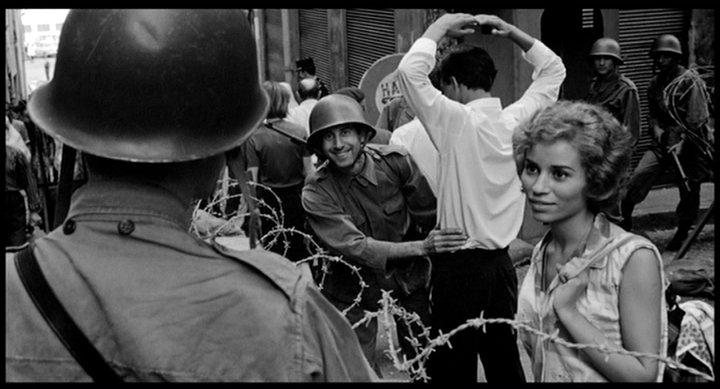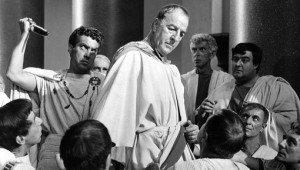Throughout JFK, but mostly towards the end of the film, there are a variety of allusions made towards Shakespeare’s works, in particular Julius Caesar. I haven’t had the chance to read the full play, but it deals with heavy themes of loyalty and betrayal, which is a direct reflection of the film’s plot about the potential betrayal of John F. Kennedy at the hands of the U.S. Government/C.I.A.
Julius Caesar is a parallel to JFK himself, as both men are viewed as legendary leaders who radically changed their respective nations, but were betrayed by the people they trusted most. Caesar’s council members, in particular the character of Brutus, who betray and assassinate Caesar during the play are meant to embody the C.I.A. and U.S. Government politicians who secretly planned JFK’s assassination for their own personal/political agendas (that is, if we are following Jim Garrison’s conspiracy theory).
Garrison uses this play almost as justification for his investigation, referencing it most noticeably during the scenes before Shaw’s trial, in the crowded room where he his trying to convince his partners to see the case through. He asks Bill if he has ever seen or read Julius Caesar when Bill begins questioning the team’s accusations against the government, and while his argument is not particularly effective on Bill, it makes for a poetic, literary allusion that implies that assassinations of political figures by their trusted advisors are not impossible (it builds rational, at least for him, that the case has a chance of succeeding).
During the court room scene at the end of the film, Garrison also uses the phrase “shuffle off my mortal coil,” to describe how many of the documents concerning JFK’s assassination would be released after he is dead, and when they would no longer be of use to him. This is a direct reference to the famous “To Be or Not to Be” soliloquy in Hamlet (which most of us have probably experienced-or suffered through-in some way, shape, or form).
I’m sure that there were a few other, more subtle Shakespeare references in the film, but these were the ones that stood out to me the most. If any of you remember any more references, or can elaborate on any of these connections in greater detail, that would be awesome (of course, we could always watch the movie again to find out. It’s only 200 minutes).

